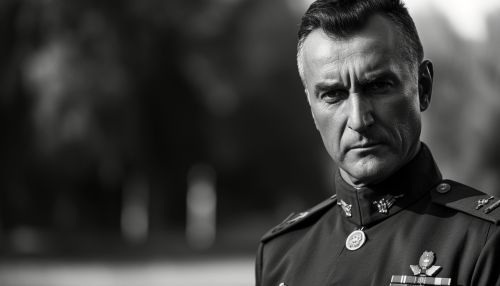Kliment Voroshilov
Early Life
Kliment Yefremovich Voroshilov was born on February 4, 1881, in the small town of Verkhneye, Russia. He was the son of a poor railway worker, and his early life was marked by hardship and poverty. Despite this, Voroshilov showed a keen interest in education and was determined to rise above his circumstances.
Military Career
Voroshilov joined the Imperial Russian Army in 1905, where he quickly rose through the ranks due to his exceptional leadership skills and strategic acumen. During the Russian Revolution of 1917, he was a key figure in the Bolshevik party and played a crucial role in the establishment of the Soviet Red Army.


Political Career
In addition to his military career, Voroshilov was also a prominent political figure. He was a close ally of Stalin and served as the People's Commissar for Military and Naval Affairs from 1925 to 1934. He was also a member of the Politburo, the highest policy-making government authority in the USSR.
Role in World War II
During World War II, Voroshilov served as the Commander-in-Chief of the Soviet Armed Forces. Despite initial setbacks, he played a key role in the Soviet Union's eventual victory over Germany. His leadership during the siege of Leningrad is particularly noted for its strategic brilliance and resilience.
Later Life and Death
After the war, Voroshilov continued to serve in various political roles, including as the Chairman of the Presidium of the Supreme Soviet, effectively the head of state of the Soviet Union. He retired from active politics in 1960 and lived a quiet life until his death on December 2, 1969.
Legacy
Voroshilov's legacy is a complex one. While he is remembered for his military and political contributions to the Soviet Union, his close association with Stalin and the policies of the Stalinist era have also led to criticism. Nonetheless, his impact on Soviet history is undeniable, and he remains a significant figure in the study of 20th-century history.
